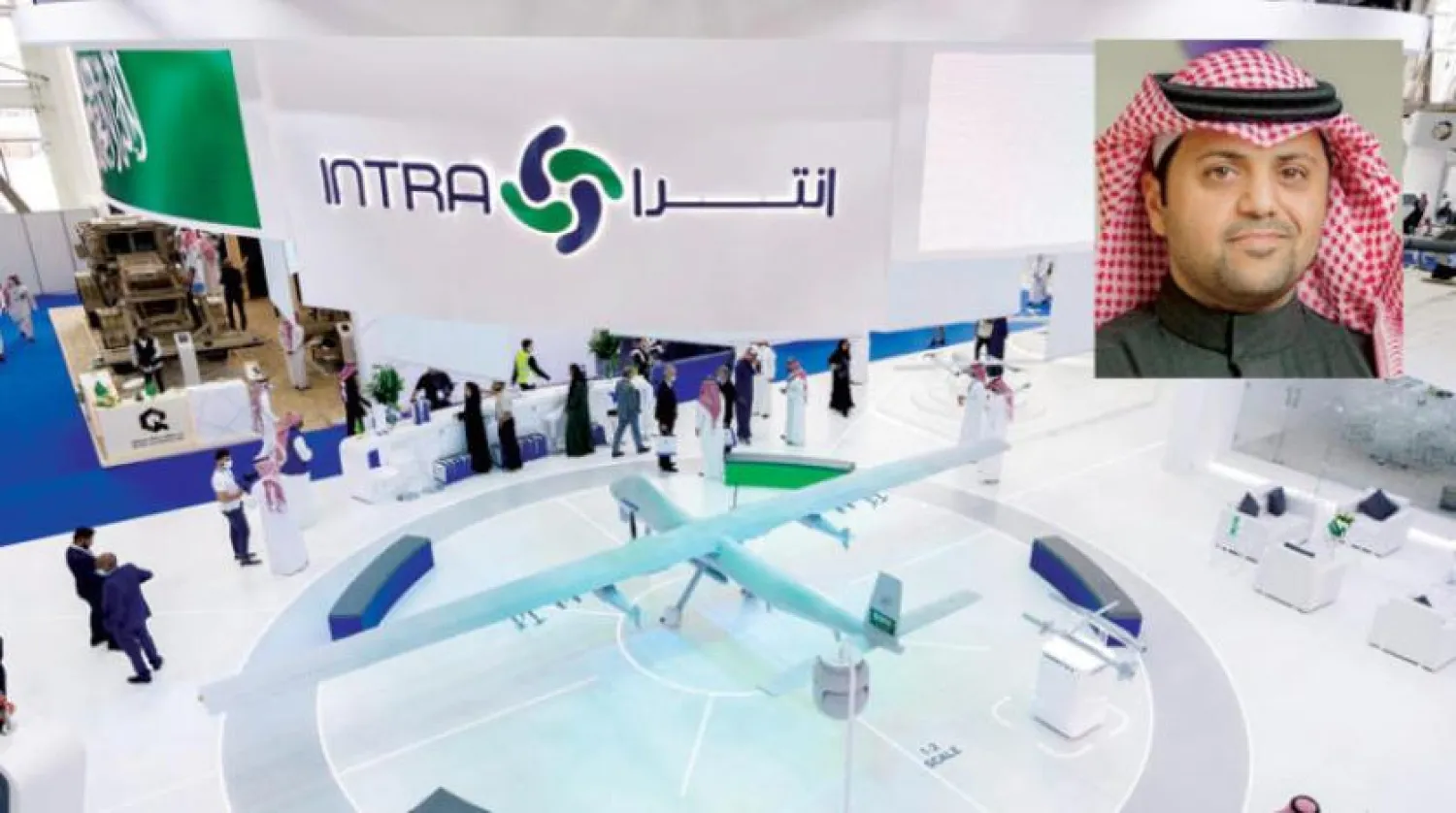Saudi Arabia’s INTRA Defense Technologies CEO Abdulsalam Ghamdi said unmanned aircraft systems have become a useful technology for many fields, indicating that a developed country such as the Kingdom cannot ignore its interest in the sector meeting its local needs.
Ghamdi highlighted Saudi Arabia’s interest in investing in manufacturing and exporting drones as the move would help to diversify the Kingdom’s sources of income and develop its capabilities.
In an interview with Asharq Al-Awsat, he revealed the details of the Samoom medium-altitude, long-endurance unmanned air vehicle (UAV). INTRA had introduced the drone at the inaugural World Defense Show in Riyadh last month.
“INTRA Defense Technologies launched the Samoom UAV for the first time at the World Defense Show in Riyadh, and it is the first strategic unmanned aircraft that is being designed and developed and will be manufactured in Saudi Arabia,” said Ghamdi.
“Samoom’s operational endurance allows it to conduct up to 50-hour reconnaissance missions with the UAV flying at up to 45,000 ft,” he revealed, adding that it could be ready to serve the Saudi armed forces by 2024.
On expanding production at INTRA, Ghamdi recalled that the company had announced the first UAV factory in the Kingdom, whose production lines will be completed, and manufacturing operations begin in the middle of 2022.
“The production plant will contain the complete infrastructure for manufacturing various airframes using composite materials according to the highest international standards,” revealed Ghamdi.
Worldwide, drones have become an active element in many fields with both civilian and military uses.
“A developed and forward-looking country, such as Saudi Arabia, cannot ignore interest in the UAV industry and in developing its own capabilities to build advanced systems and meet its local needs,” said Ghamdi.
He highlighted Saudi Arabia’s interest in investing in the manufacture and export of drones.
“It is no secret that progress in productive industries enhances national sovereignty and bypasses export restrictions that some countries may impose on supporting materials and systems,” he continued.
He moved on to point out that the production of drones is part of Saudi Arabia’s plan to localize military industries, transfer and localize unmanned aircraft systems, and enhance local content in the military industries sector.
All these objectives top the goals of the Kingdom's Vision 2030.
The Kingdom is at an important stage in the process of digital transformation across various sectors, and this provides the infrastructure needed for making great strides in the field of UAV production.
“There is no doubt that the progress that Saudi Arabia enjoys would benefit all businesses, including the military manufacturing of defense systems and unmanned aircraft, which require a high level of technical readiness,” explained Ghamdi.
Such a headway was achieved thanks to the government’s support under the leadership of Custodian of the Two Holy Mosques King Salman bin Abdulaziz and Crown Prince Mohammed bin Salman, Deputy Prime Minister and Minister of Defense.
As for Saudi defense companies building international ties, Ghamdi said that platforms and exhibitions, such as the World Defense Show, provide local manufacturers with the opportunity to exchange experiences, bridge distances, build partnerships and strengthen relationships with global designers, sector leaders, and stakeholders in the military and security industries.
“These connections would have a positive impact on the Kingdom's ambitions for localizing more than 50% of its military spending by 2030, and could contribute to consolidating the bonds of cooperation that bring the Kingdom together with its partners in the defense industry from around the world,” he noted.
Moreover, major transformations in the Saudi investment environment and the many new regulations and legal and social reforms, have raised the Kingdom's attractiveness and increased its interaction with the growing opportunities in all fields, including the military and security manufacturing sector.
The Kingdom's position as one of the world's most influential countries in the defense industry and its influence on many regional and international files make it an ideal destination for military production.
“Saudi Arabia’s strategic geographical location connects three continents, and places the Kingdom at the center of global supply chains and the heart of logistical equations, as well as being one of the largest international markets in the defense industry and related technologies,” stressed Ghamdi.
The localization of the military industries sector in the Kingdom is at the heart of the goals of Vision 2030.
“During the past four years, the localization rate doubled from 2% in 2016 to 12% by the end of 2021,” revealed Ghamdi, adding that the increased rates bring the Kingdom closer to reaching its 50% goal by 2030.
The high demand from local and international investors to enter Saudi Arabia’s military industries sector proves that the Kingdom is an attractive market for investment, and that the General Authority for Military Industries (GAMI) is working to overcome the difficulties that may face investors in this sector.
In its latest reports, GAMI revealed that the number of licensed companies in the military industries in the Kingdom would increase by 41% by the end of the first half of 2022.










